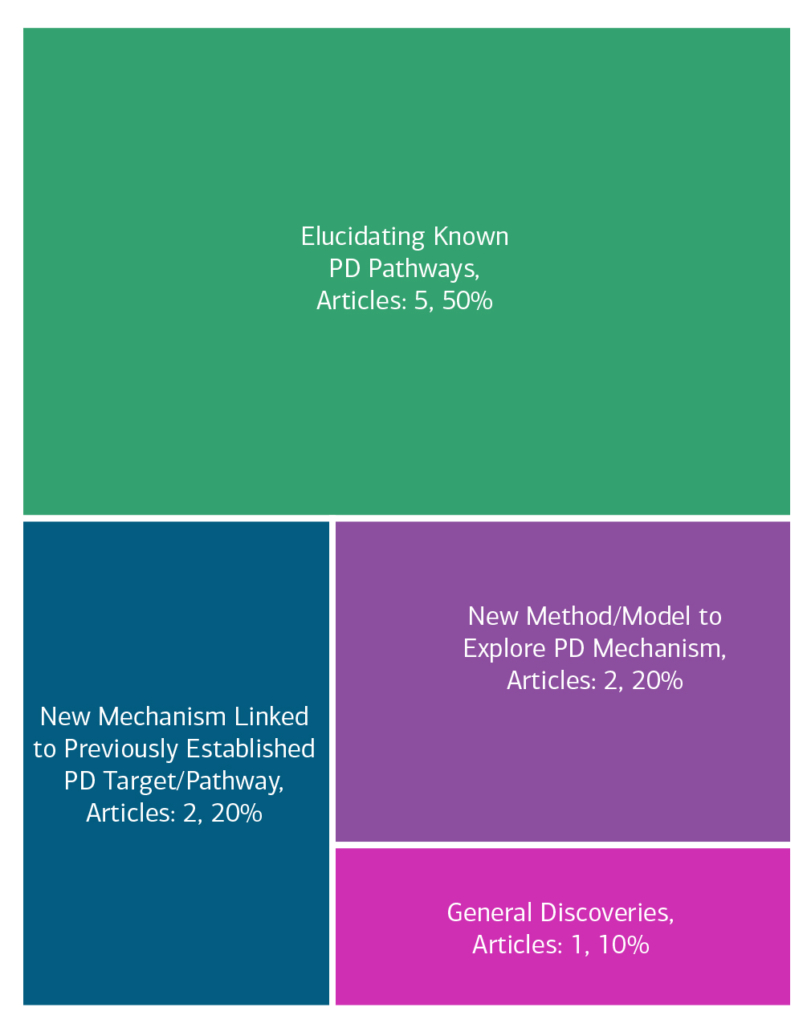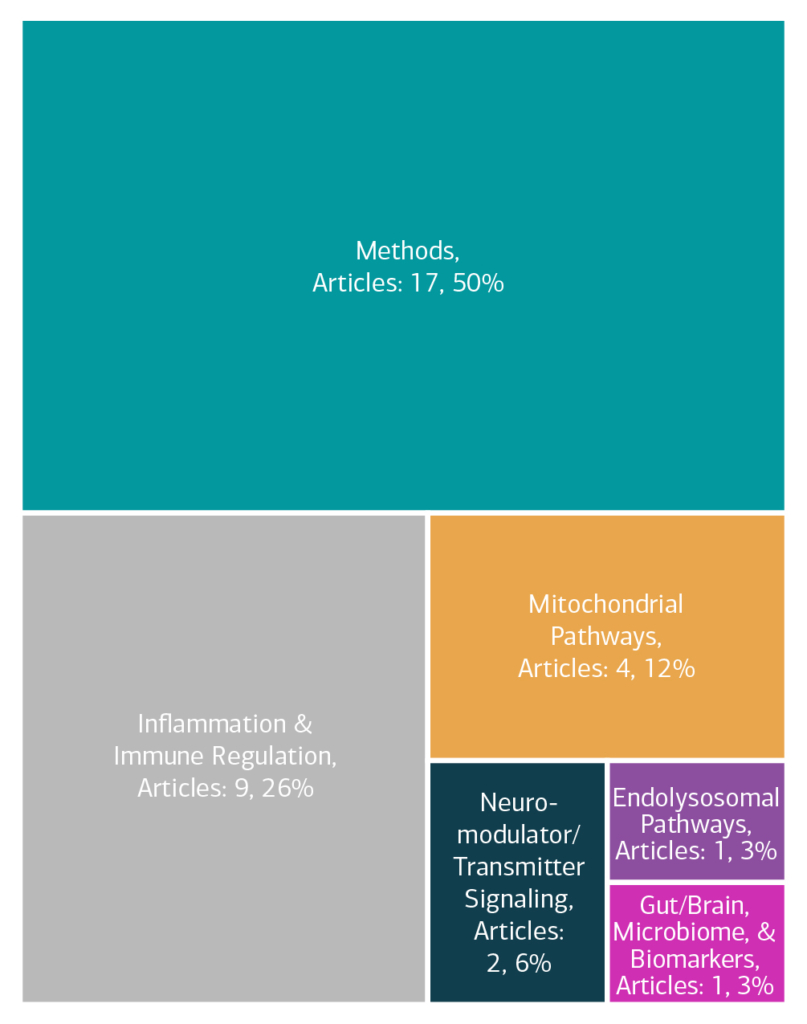Neuro-immune Interactions | 2020
Role of PD-related Proteins as Drivers of Disease through Modulation of Innate and Adaptive Immunity
Study Rationale: The hallmark motor impairments in Parkinson’s disease patients are due to the progressive loss of a special type of neuron in the brain using the chemical messenger dopamine. The mechanisms leading to their destruction during disease progression are not well known. An emerging concept in the field of Parkinson’s disease is that the immune system plays a role in the progressive death of these neurons.
Hypothesis: Team Desjardins hypothesizes that Parkinson’s disease is initiated years before the emergence of motor dysfunction in response to mechanisms triggered following gut infection with Gram-negative bacteria. This leads to an autoimmune reaction producing specialized immune cells that can reach the brain and attack dopamine-producing neurons.
Study Design: Team Desjardins will study how mutations in proteins associated with Parkinson’s disease (PINK1, Parkin, LRRK2, VPS35, and GBA) affect the function of immune cells in isolated cell culture (in vitro), as well as in mouse models of Parkinson’s disease. In the model, the team will characterize how the immune system is stimulated during gut infection to produce cytotoxic T lymphocytes, and how these cells reach the brain and attack dopamine-producing neurons. Similar studies will also be done with immune cells from the blood of Parkinson’s disease patients and neurons derived from stem cells.
Impact on Diagnosis/Treatment of Parkinson’s Disease: The involvement of the immune system in Parkinson’s disease suggests that novel types of therapeutic approaches targeting immune cells could be developed to slow the progression of the disease or even prevent it early on before the emergence of motor impairments.
Leadership
Project Outcomes
Team Desjardins' project will identify how alterations in the function of Parkinson’s disease-related proteins modulate the immune system and the pathological process leading to motor impairments, as well as key cellular processes that can be targeted for therapeutic intervention. View Team Outcomes.
Team Outputs
Click the following icons to learn more about the team’s outputs:
Overall Contributions
Here is an overview of how this team’s article findings have contributed to the PD field as of June 2025. There are two different categorizations of these contributions – one by impact to the PD community and a second by scientific category.
Impact

Category

Featured Output
Below is an example of a research output from the team that contributes to the ASAP mission of accelerating discoveries for PD.
A rewiring of the earliest immune events leading to T-cell mediated disease following intestinal microbial infection in a PINK1KO mouse model of Parkinson’s disease
Team Desjardins developed a GI-targeted pathogen-induced PD mouse model system in PINK1 KO mice with Gram-negative bacterial infections and found that T cells are a major player in driving PD-like motor symptoms at late stages following infection.
Team Accolades
Members of the team have been recognized for their contributions.
- Network Spotlights: Lilia Rodriguez
- Awards
- 2023 Collaborative Meeting: Sherilyn Junelle Recinto (Second Place Winner in Neuro-Immune; San Diego), Jack Collier (Community Data Blitz Talk Winner; London)
- COSA Prize Winners 2022: Sherilyn Junelle Recinto (Community Prize)
- COSA Prize Winners 2024: Ahmed Fahmy (Community Prize)

In the News
- $12.5 million awarded to Montreal team to study Parkinson’s disease (McGill, press release, September 18, 2020)











